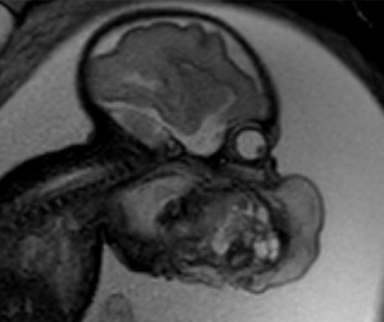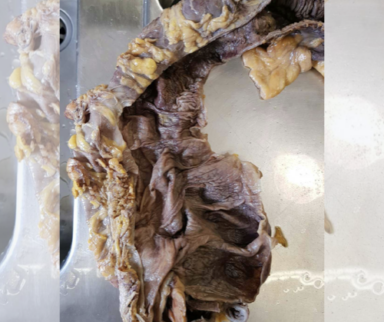
There’s an ongoing debate around fasted vs. postprandial exercise for glycemic management in patients with diabetes. To help end the debate, we spoke with two researchers — Dr. Jenna Gillen and Dr. Normand Boulé — about current scientific findings that support their stances.
Dr. Gillen, assistant professor and faculty of kinesiology and physical education of the University of Toronto, focuses her research on understanding how exercise and nutrition impact carbohydrate and fat metabolism in humans. Per her research, she supports the view that postprandial exercise is more beneficial for glycemic management.
Dr. Boulé, professor and associate dean graduate and faculty of kinesiology, sport, and recreation of the University of Alberta, focuses his research on the role of exercise in preventing and managing diabetes specifically in adults with type 2 diabetes. Per his research, he supports the view that fasted exercise is the optimal strategy for glycemic management.
Primary Arguments Supporting Fasted vs. Postprandial Exercise
The primary argument for the postprandial approach, said Dr. Gillen, is that it is the “optimal strategy to reduce hyperglycemia and improve HbA1C in individuals with or at risk for type 2 diabetes.” She emphasized the importance of hyperglycemia and HbA1C for glycemic management, saying that hyperglycemia, particularly following meals, is a concern for people with prediabetes and type 2 diabetes and is one of the largest predictors or contributors to elevations in HbA1C for many individuals.
On the other side of the argument, Dr. Boulé, highlighted that fasted exercise can more effectively target intracellular glycogen and lipid storage. He added that a far greater number of studies have supported long-term fasted exercise training to reduce glucose and insulin.
Effect on Glucose: Fasted vs. Postprandial Exercise
Per Dr. Boulé, the challenges in handling excess glucose are primarily related to storage capacity, in terms of both storing carbohydrates as glycogen in muscles and liver and storing fat in adipose tissue and other tissues. Insulin resistance and issues with insulin secretion arise when excess carbohydrates cannot be effectively stored as fat, leading to various complications. Regular cycling of depleting and repleting cellular reserves through exercise and meals helps optimize the storage and distribution of glucose in the body.
Focusing on the acute effects of exercise, Dr. Gillen presented research showing that a person will immediately reduce hyperglycemia caused by eating a meal if exercising in the postprandial state, as opposed to exercising in the fasted state. She pointed to a study by Verboven and colleagues that looked at the reduction in HbA1C following 12 weeks of fasted vs. postprandial exercise in patients with type 2 diabetes. The study revealed that only the group that exercised in the postprandial state had reductions in HbA1C from pretraining to post-training at the end of the 12 weeks.
Dr. Gillen also presented a meta-analysis of 15 studies that looked at meal timing and exercise in people with type 2 diabetes. The results of this meta-analysis emphasize that engaging in postprandial exercise immediately after a meal is the most effective strategy for reducing hyperglycemia, surpassing pre-meal exercise or delayed exercise after the meal and leading to the greatest reductions in blood glucose levels.
Effect on Glycogen: Fasted vs. Postprandial Exercise
While Dr. Gillen emphasized the effects exercise pre- or post-meal can have on glucose levels, Dr. Boulé focused on the glycogen aspect of glucose management during exercise. One study he referenced compared 60 minutes of aerobic exercise in the morning before breakfast and after lunch, showing similar glucose and insulin levels over the day but distinct changes in glycogen reserves. The study showed that fasted exercise led to greater glycogen depletion in muscles and especially in the liver.
Dr. Boulé added that while there may be more evidence to support postprandial exercise in terms of acute reactions, some longer-term studies have shown if a person exercises in a fasted state, they experience great improvements in insulin sensitivity over six or 12 weeks of training in the study presented.
Dr. Gillen responded to Boulé’s points, recognizing that longer term studies have shown that if you exercise in the fasted state, you get greater improvements in insulin sensitivity over time. However, she continued by highlighting that the majority of those studies have been in lean, healthy males who do not have diabetes, therefore limiting our understanding of the effect of fasted exercise on people with diabetes specifically.
The Wrap Up: Fasted vs. Postprandial Exercise
Wrapping up the debate, Dr. Gillen reiterated how her research has shown that if one is going to perform a single bout of exercise in an effort to lower their blood glucose concentrations in the short term, then postprandial exercise is the optimal option. While acknowledging there is less research on the approach, Dr. Boulé highlighted the promise of preliminary evidence that shows benefits of fasted exercise in the long term.
Published July 24, 2023
Join the Conversation
Sign up for Figure 1 and be part of a global community of healthcare professionals gaining medical knowledge, securely sharing real patient cases, and improving outcomes.


